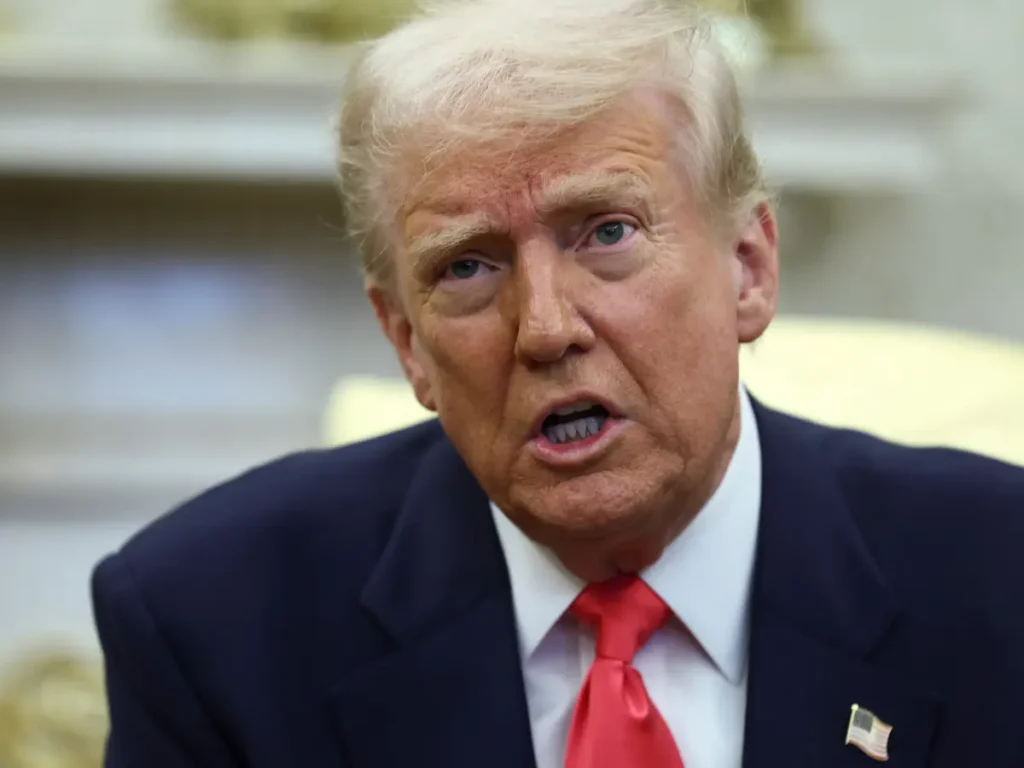Taiwan’s central bank has issued a warning about potential economic risks linked to the policies of former U.S. President Donald Trump, particularly if he returns to office in the 2024 U.S. presidential election. With global markets closely watching policy changes in the world’s largest economy, Taiwan faces uncertainties that could impact trade, investment, and financial stability.
Taiwan’s Economic Dependence on the U.S.
Taiwan has a highly export-driven economy, with the United States being one of its largest trading partners. The island is a key supplier of semiconductors and technology components, which are vital to U.S. industries ranging from consumer electronics to defense.
Any significant policy shifts under a new Trump administration could reshape economic ties, affecting trade agreements, tariffs, and supply chain stability. The central bank’s concerns highlight the broader implications for Taiwan’s economy.
Key Risks Highlighted by the Central Bank

Taiwan’s central bank has pointed out several potential risks associated with a return of Trump-era policies:
1. Trade Policy Uncertainty and Tariffs
Trump’s previous administration imposed high tariffs on Chinese goods, leading to a broader U.S.-China trade war. While Taiwan benefited in some ways—gaining market share as U.S. companies reduced reliance on China—escalated tensions could create instability in global trade flows.
If new tariffs target Taiwan’s industries, particularly its semiconductor sector, businesses may face increased costs and supply chain disruptions.
2. Pressure on Taiwan’s Semiconductor Industry
Taiwan Semiconductor Manufacturing Company (TSMC), the world’s leading chipmaker, plays a crucial role in global tech supply chains. The central bank warns that policies favoring reshoring U.S. semiconductor production could challenge Taiwan’s dominance in this sector.
Trump has previously emphasized bringing semiconductor manufacturing back to the U.S. If further incentives or restrictions are introduced, Taiwan’s chip industry could experience reduced demand and competitive disadvantages.
3. Currency and Financial Market Volatility
Trade tensions and shifts in U.S. monetary policy can lead to currency fluctuations. If the U.S. dollar strengthens due to policy changes, the New Taiwan Dollar (NTD) may depreciate, affecting import costs and inflation.
The central bank remains cautious about maintaining stability in Taiwan’s financial markets amid potential disruptions from U.S. policy shifts.
4. Impact on Taiwan’s Exports and Investment
Trump’s stance on global trade agreements often prioritizes U.S. interests, which could lead to increased protectionist measures. Taiwan, heavily reliant on exports, may face challenges if new policies create trade barriers or discourage foreign investment.
Additionally, policies influencing global supply chains could push companies to diversify away from Asia, affecting Taiwan’s manufacturing sector.
How Taiwan is Preparing for Potential Risks
Taiwan’s government and businesses are already taking steps to mitigate potential economic disruptions:
1. Strengthening Economic Diversification
To reduce reliance on U.S.-Taiwan trade, Taiwan is expanding economic ties with other partners, such as Japan, South Korea, and the European Union. Efforts to increase trade agreements and investments with these regions can provide alternative growth opportunities.
2. Enhancing Domestic Semiconductor Resilience
While Taiwan remains the leader in semiconductor production, efforts are underway to strengthen its technological edge. Investments in research, workforce development, and government support for the chip industry aim to keep Taiwan competitive, even if U.S. policies shift.
3. Monitoring Exchange Rate Stability
The central bank is closely monitoring foreign exchange markets to ensure Taiwan’s currency remains stable. Policy adjustments may be made to counteract volatility caused by external economic factors.
4. Expanding Global Trade Networks
Taiwan is actively pursuing entry into major trade agreements, such as the Comprehensive and Progressive Agreement for Trans-Pacific Partnership (CPTPP). Inclusion in such agreements would help buffer Taiwan’s economy from potential U.S. policy changes.
Conclusion
Taiwan’s central bank has raised a red flag about potential economic risks associated with a return to Trump-era policies. With trade, investment, and financial stability at stake, Taiwan is proactively seeking ways to diversify its economy and strengthen its resilience against external shocks.
As the 2024 U.S. presidential election unfolds, businesses and policymakers in Taiwan will continue to assess potential risks and adjust their strategies accordingly. While uncertainty remains, Taiwan’s adaptability and strong economic foundations provide a solid buffer against future challenges.
Saudi Arabia’s Non-Oil Private Sector Continues to Grow, Survey Shows
Do follow gulf magazine on Instagram
for more information Gulf magazine .



